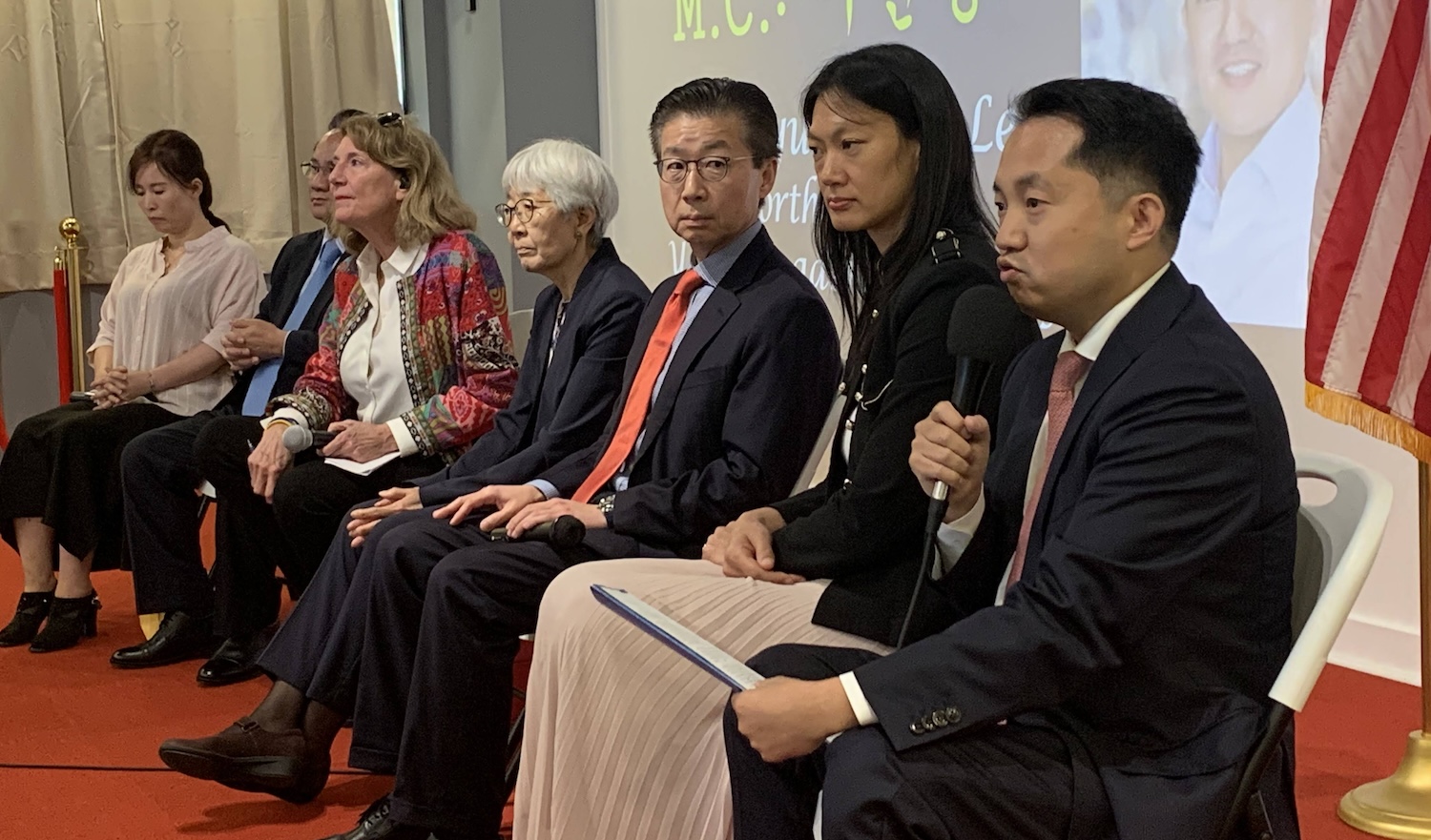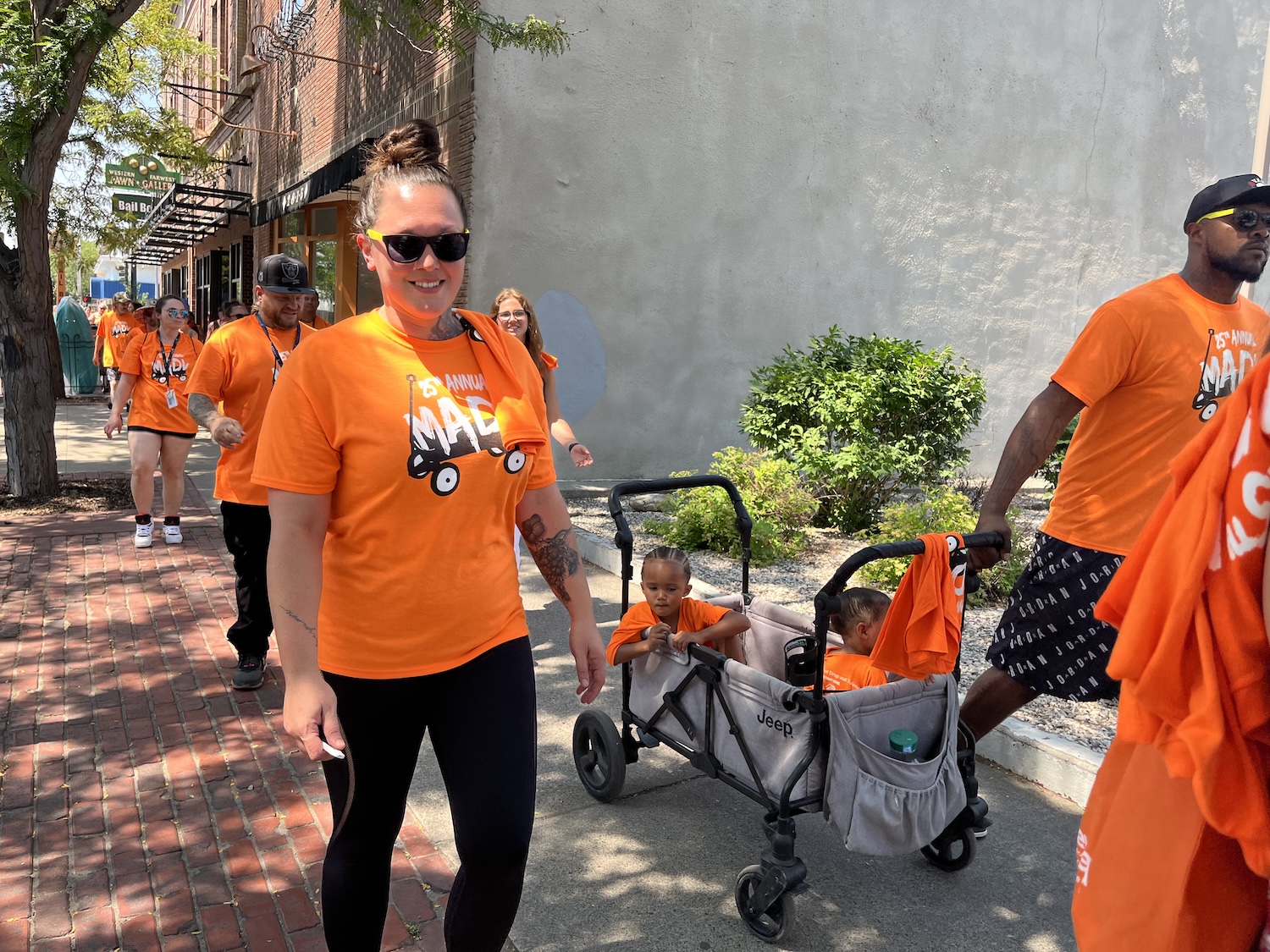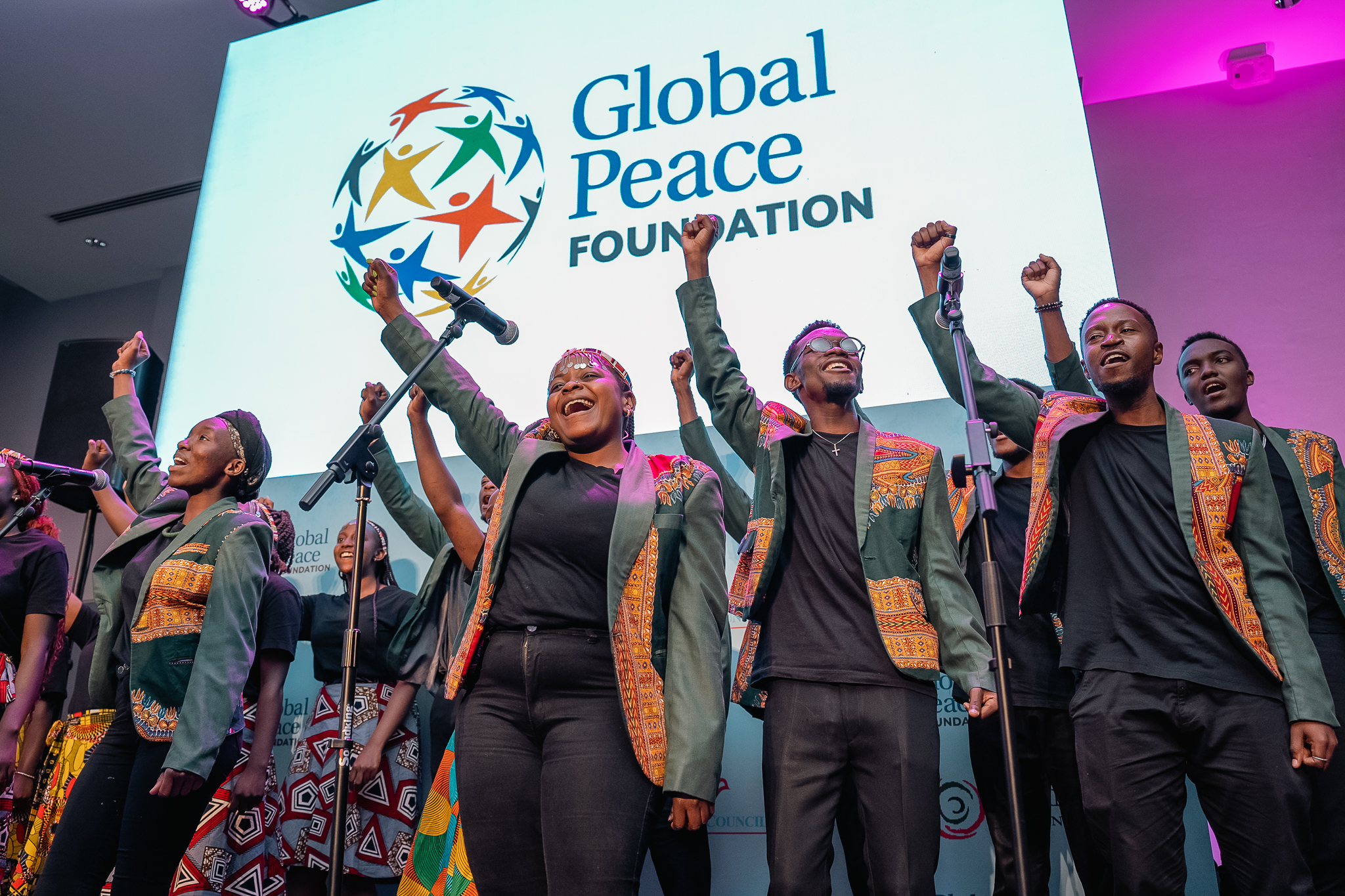Values of Family and Faith are Important to ‘New Pilgrims’
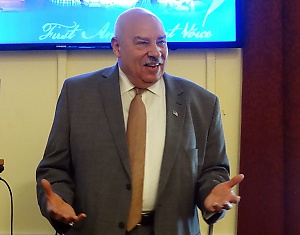
GPF USA President Alan Inman
Hosting new Americans from Africa, Asia and Latin America at a forum on Capitol Hill in Washington, Global Peace Foundation USA President Alan Inman told the participants, “There is no such thing as a ‘freshman American.’ Some may have ancestors that fought with Washington. Others may have arrived last year. But all share identical rights and obligations as citizens.”
Meeting on May 9 on the theme “Living in America: Diaspora Perspectives on the Values of Faith and Family,” the forum explored the contributions that immigrants have made in revitalizing American ideals.
Panelist Essey Workie, the Director of Planning and Development for the U.S. Committee for Refugees and Immigrants, reflected on the rapid changes in American society and her own spiritual journey as a Christian. Describing the challenges she experienced in different phases of her life and experience with people of other faiths, she came to realize that “a label is just a label.” More important she said were character traits or “fruits of the spirit.”
“Is a person or organization full of peace, gentleness, patience, love? And how do we know if we are moving the needle toward progress in these directions?” she asked. A discussion about faith and family, she said, was not an abstraction but more importantly about improving lives. Noting the value of indicators to measure progress, she suggested one method, a Wellness Wheel, which could be a measure of economic, social, spiritual, locational, functional, intellectual, and physical progress and wellbeing.
“America is about an idea. Those who framed the Constitution were inspired by the idea that to achieve lasting peace we must live in freedom—an idea not only for America but a human idea.”
Israel Ortega, a nationally recognized political commentator and the Senior Writer for Opportunity Lives, presented a sociological perspective on social and cultural indicators, including marriage and divorce, single parents, teen drug use, abortion, religious attendance, unwed birth rate, and others. Focusing on Hispanic immigrants, but recognizing other immigrant populations had similar perspectives, he noted the significance of the extended family, respect for elders, and importance of faith for identity and way of seeing the world
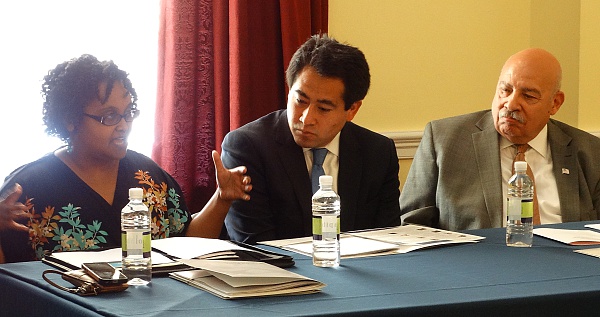
From left: Panelists Essey Workie, Israel Ortega and Alan Inman
As immigrant populations become accustomed to life in the United States, he said, it becomes inevitable that secularizing trends make an impact on the values that immigrants hold. Recalling the theme of the forum and the contributions that immigrants can make to support a healthy and vibrant society, Ortega said it was important for immigrant communities to stay informed, know their elected officials, make their voices heard, and recognize that in a democratic society there is power in numbers. “The reason why I care so much is not just to give back to the country but to equip our next generation,” he said.
In his remarks, Alan Inman noted that immigrant communities bring strong traditions of faith and family, and likened immigrant communities to the Pilgrim Fathers. He said the Pilgrims came to America believing they had a mission: “Those that landed here were willing to die, and it was the strength of their faith that allowed them to succeed. You are new pilgrims, bringing faith and dedication to family to America, where these values are in serious decline today.
“America is about an idea,” Inman said. “Those who framed the Constitution were inspired by the idea that to achieve lasting peace we must live in freedom—an idea not only for America but a human idea. So to be an American it is the containment of freedom in your heart and mind and behavior. Once I decide I accept that, I have just as much skin in the game as anyone else. What happens to the family depends on me. What happens to our society depends on me. I can’t point the finger at President Trump or President Obama. I can only point the finger at myself.”
“Is a person or organization full of peace, gentleness, patience, love? And how do we know if we are moving the needle toward progress in these directions?”
Following the panelists’ remarks, participants broke into groups to examine action steps to develop collaborative committees around issues that affect the family. Committees would develop focus areas that interact with churches, schools, and media; organize forums and develop a communication plan; and work with GPF USA to support communications, program development and policy formation.
The Capitol Hill forum was sponsored by Rep. G.K. Butterfield (D-North Carolina), unanimously elected Chairman of the Congressional Black Caucus for the 114th Congress. Diann Dawson, former Director of Regional Operations Administration for Children and Families, served as moderator for the forum.

